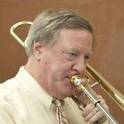Equali were works written for equal, or similar, instruments; in the eighteenth century they were almost always used for funeral services and usually employed a quartet of trombones. The most famous of these were the three Beethoven wrote for the Linz Cathedral in Austria on All Soul’s Day 1812. Two of these were adapted later for male voices and were sung at Beethoven’s funeral.
These pieces are some of the most famous works for trombones, no doubt due to the fact that they were composed by Beethoven. They were commissioned by Franz Xaver Glöggl, Kappelmeister of the city of Linz, while Beethoven was visiting his brother. According to later accounts by Glöggl’s son, although his father had a complete collection of trombones (soprano, alto, tenor, bass or quart) the three Equali were performed by a traditional quartet of alto, tenor and bass trombones.
This edition offers a compromise: the original score and parts are given exactly as written in the complete works, and a version designed for the less experienced players: the three movements are transposed down one step, edited with minor musical suggestions, and all four parts are written in bass clef.
Available at: http://works.bepress.com/david_mathie/6/
